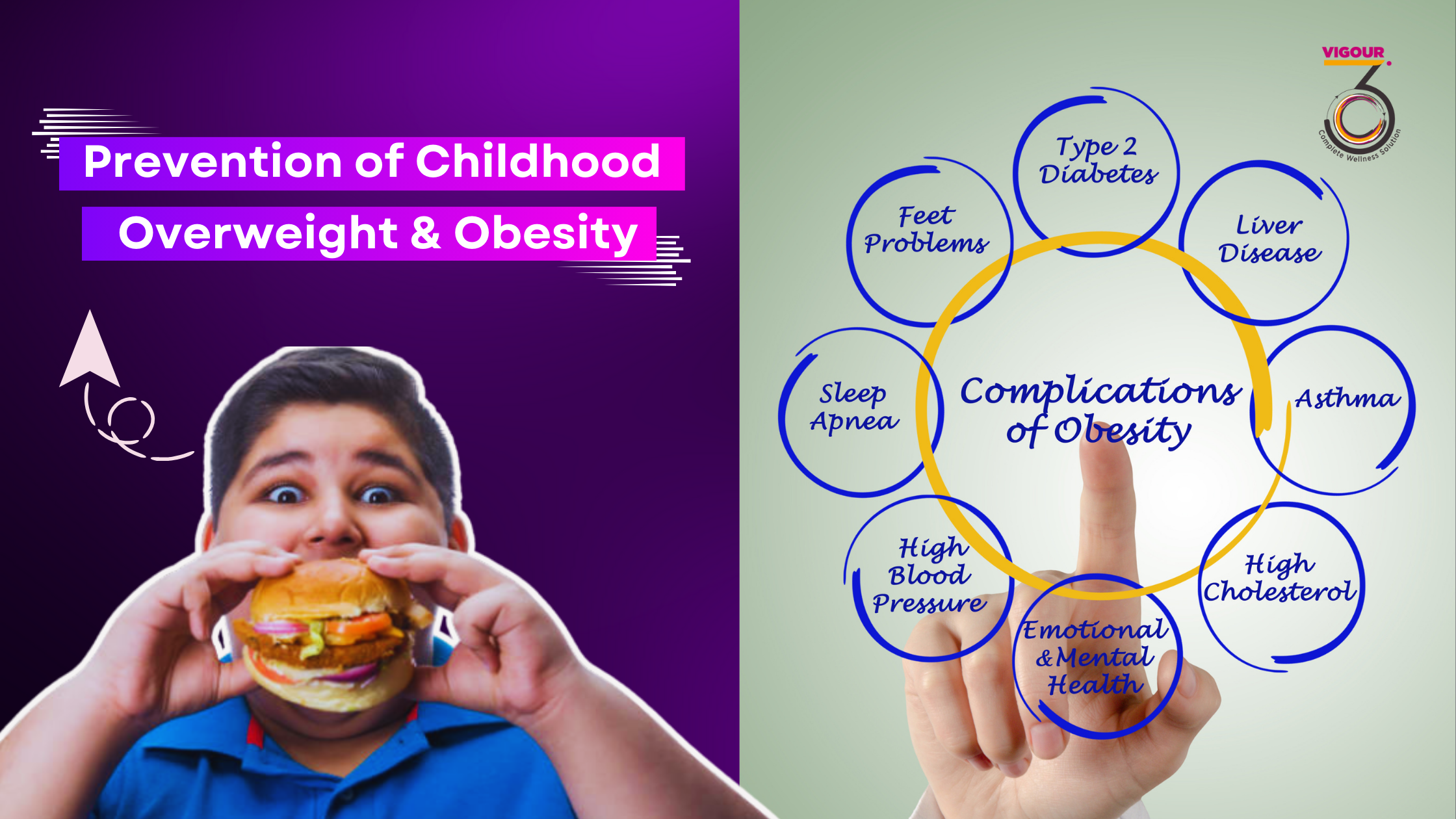
Childhood obesity is on the rise. It is a big problem for a growing child in all aspects. It leads to excess intake of calories, fats, refined carbs, etc., It leads to body shaming by peers and low self-esteem and the child may fall prey to degenerative diseases in the future.
Many factors contribute to children’s increase in weight; including diet to start with. Children unknowingly consume very high-calorie foods, such as baked goods and junk items in one sitting, which on obvious grounds causes them to be lethargic, tired, and less active for the rest of the day.
Easy and fast calories are consumed through foods like candies, desserts, packed juices, etc. so avoiding or limiting them will help
.png)
It has emerged as a highly effective strategies for intervening in and preventing childhood obesity. By actively engaging parents, these approaches capitalize on the influential role parents play in shaping their children's dietary habits and physical activity levels.
By controlling the home environment, offering education and support, and exemplifying healthy behaviours, parents can significantly impact their children's caloric intake and energy expenditure. This holistic approach not only addresses the immediate factors contributing to childhood obesity but also fosters a sustainable lifestyle conducive to long-term health and well-being.
School-based interventions for childhood obesity encompass nutrition assessment and guidance, providing students with healthy tiffin options, implementing preventive screenings for BMI, and conducting body composition analysis.
These initiatives aim to promote healthy eating habits, educate students about nutrition, identify at-risk individuals, and tailor interventions accordingly.
By integrating a high-tech school health program into the school curriculum, educators can play a vital role in fostering a supportive environment for children's physical health and well-being.
Many times parents order food from outside or eat out regularly which introduces an array of foods to the kids. If this list of foods includes junk foods, then the kids get hooked on eating junk food early in life.
Often parents celebrate the success or win of their child by going to a fast-food center, so it creates an impression in the kid’s mind that such foods are a reward for him.
Parents should also take into consideration their eating habits which affect the likes and dislikes of the child. The habit of watching television or performing other tasks during eating time is to be avoided. The family as a whole should practice this and thus avoid obesity getting into their shoes.
Overall, as a parent, one should set a good example for the children, like practising healthy eating and picking fruits instead of ice creams or packaged foods. Offer different meal types and snacking options in their diet when required. Do not make food-rewarding games a daily practice as it will add to calories and lead to their habit formation.
Lack of exercise and a sedentary lifestyle for a kid at such a young age will strictly be a no-no.
Thus, pushing this generation of kids to play on the ground and to perform exercise/activities like swimming, and cycling is a must. A regulated and proper sleep cycle is a must and screen time should also be limited.
Combating obesity demands collaboration between families and schools. A wholesome family lifestyle is essential for the comprehensive growth of a child. Schools contribute by imparting education and awareness, implementing regular health checkups, and fostering physical activity to bolster the well-being of children.
Together, these concerted efforts pave the way for a healthier future generation, emphasizing the crucial role of both familial and educational environments in addressing the challenge of childhood obesity. Learn more.
Comments (0)